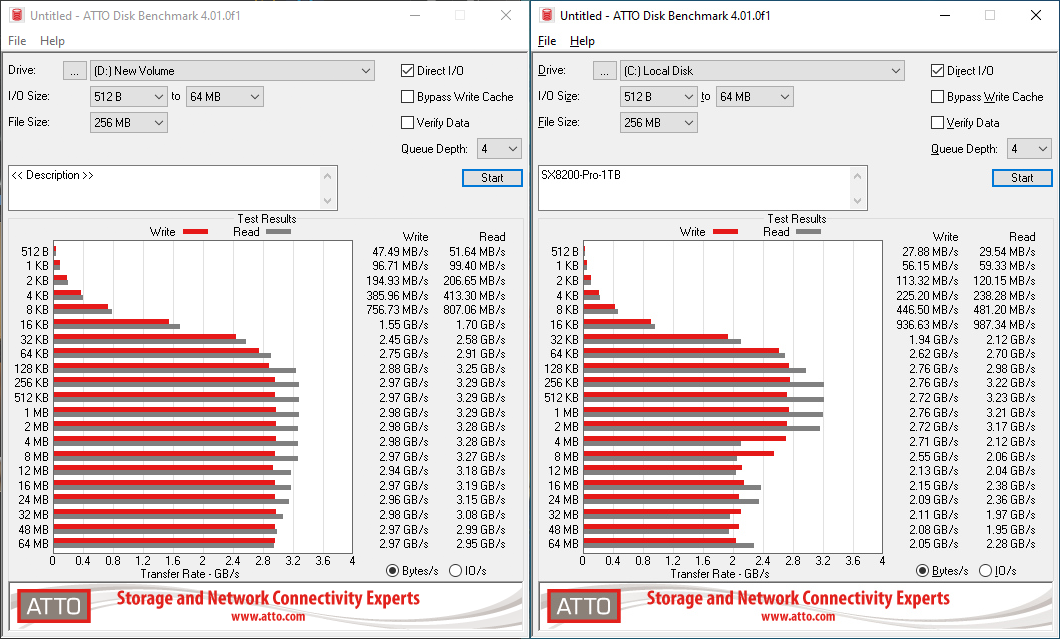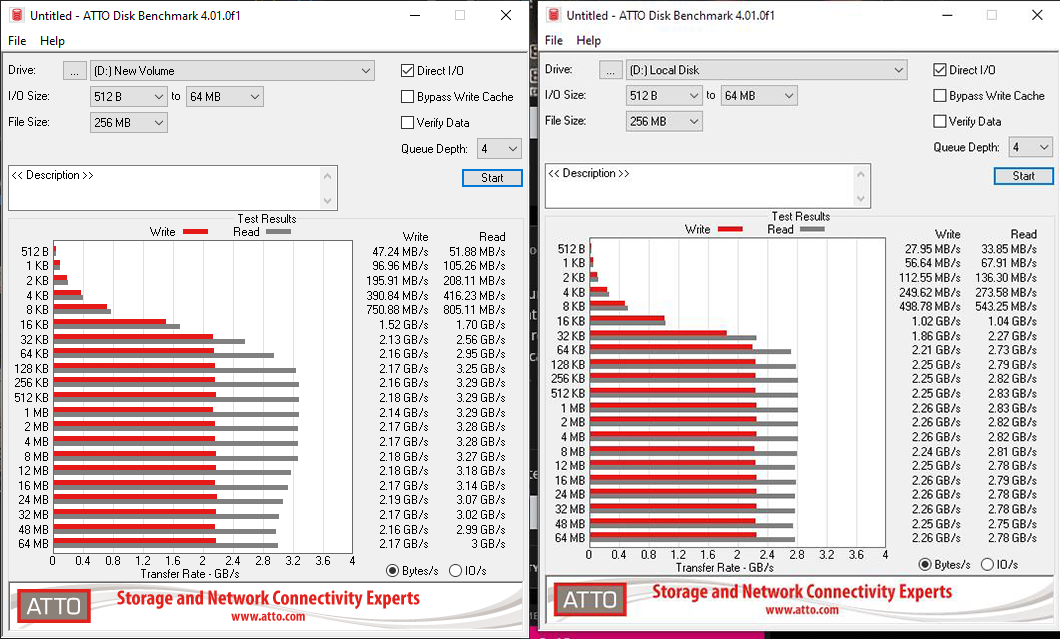Adata Switches to Slower Controller, NAND on SX8200 Pro
A change in components could mean slower performance.
Because of its fast speeds, great value and strong power efficiency, Adata’s XPG SX8200 Pro remained at the top of our list of best SSDs for more than a year and was only recently dethroned by newer models. But the drive remains very popular and often goes on sale. However, the company recently changed the controller and NAND flash on at least some units, leading to potentially slower performance than we, and many consumers, experienced previously.
A recent Reddit post called attention to the issue, pointing out that the company is swapping out the original SSD controller, an SMI SM2262EN, for the slower-clocked SM2262G, but without informing the public of the changes. This is the first time we’re aware of a company swapping out a controller on an SSD without changing the product name/branding, but Adata left itself some wiggle room by not actually listing the specific controller model on its spec sheet in the first place, stating only that the drive uses an "SMI" controller, which is still true. Adata has acknowledged the change and provided a statement, which you’ll find below.
Adata is also swapping in different NAND flash in order to fulfill demand, but changing the flash on a shipping SSD has become a more common practice in the recent past. However, these changes also haven’t been disclosed to the public, meaning customers don’t know that they are buying potentially slower versions of the originally-shipping models that were sent to reviewers.
Customers who’ve become aware of these changes are not happy, as the majority of SX8200 Pro reviews, including our own, cover the version with the faster, SM2262EN controller. The controller change was initially noted in a recent review by ServeTheHome in early October. Adata told Will Taillac, the reviewer, that “The performance of drives with 2262G is the same with the drives with 2262EN, and the drives with either/or controllers can be seen in the market at the same time as well,” but our findings show that, at least in theoretical workloads, the new controller is slower.
The SM2262G and SM2262EN SSD controllers aren’t the same and seemingly do not perform entirely the same. The SM2262G may be built on the same silicon as the SM2262EN, but it lacks the same performance-tuned firmware as the EN model. We confirmed the difference with SSD utilities after a few Redditors sent us their hardware ID readouts. The SM2262G models come with the same ROM as the standard SM2262, ROM version SVN00235, while the SM2262EN models we have all feature ROM version SVN047.
The two Cortex R5 cores on the SM2262EN typically operate at 625 MHz, with the only exception to this being our 1TB SX8200 Pro sample from the launch that is clocked even higher at 650 MHz. The SM2262G popping up on new purchases operates at a slower, 575 MHz.
Adata’s official response states:
Get Tom's Hardware's best news and in-depth reviews, straight to your inbox.
“SM2262EN = SM2262ENG, and SM2262G is an updated version of the SM2262EN. According to SMI, the reasons why there are slightly different on the naming, just because the timing of releasing the controllers are different and also because the controllers were designed for different customers. For SM2262G, SMI designed this model for some specific customer who emphasized on the durability. Therefore, the switch to the G model was to provide longer SSD life. We don’t guarantee the controllers we would use among the three (SM2262EN / SM2262ENG / SM2262G) or NAND brand on our SX8200 PRO, but we do guarantee that every SX8200 PRO will perform to spec within the regular variations since the drives have been tested stringently.”
Adata also changed the NAND flash on the models - the company swapped out the IMFT 64-Layer TLC flash for Samsung’s previous-gen 64-Layer TLC V-NAND, which is often purchased by vendors on the spot market. Adata has swapped out the flash even before this, too. A post on Reddit reveals that a customer received an Adata XPG SX8200 Pro with UNIC2 packaged NAND two months ago, and another user on Overclock.net made a similar report as far back as January.
Unfortunately, not only does the controller run at lower speeds, but the flash channel interface also operates slower too. Sample data we acquired on a model with Samsung flash reports interface speeds of just 525MT/s on the new SSDs, while the majority of SM2262EN-flashed SSDs operate at 650MT/s (or faster) to provide higher performance in sequential workloads.
Note that, like most SSD vendors, Adata's published specs are extremely broad so the XPG SX8200 units with the new controller may meet them, while still being slower than those with the old one. The company's spec says only that the drive has a max performance of 3,500 MBps read and 3,000 MBps write, along with a maximum 4K random read / write of 390,000 and 380,000 IOPS. However, as with all storage specs, these are theoretical maximums and, even with the original version of the drive, we never hit them, nor did we expect to.
However, we were able to compare our test results in ATTO, a popular storage benchmark, with those from both ServeTheHome and an end user on Reddit. In both cases, our numbers were significantly higher than those with one of the new drives.

The above are results from my current early sample 1TB Adata XPG SX8200 Pro on the left and ServeTheHome’s recent sample results on the right. As you can see, at the 64MB block size, our read and write rates were 23 and 31 percent faster than theirs. The performance gaps are similar at different block sizes.

We also obtained sequential performance benchmarks with a 512GB model from a Redditor with the new SM2262G variant that comes with Samsung’s 64-Layer TLC flash. Again, our results are on the left and the Redditor’s results are on the right. At this capacity, the gaps are smaller and, in a few block sizes, the new drive actually beats the old one with 0.1 GBps faster writes. However, at the small block sizes that matter most, including 4K, performance on the old drive is still much faster.
It's important to note that ATTO is a synthetic test so it's unclear how these changes will impact real-world workloads such as loading a game level or opening an app. However, sequential transfers like this usually have an impact on large file operations like copying, backing up or saving big chunks of data.
These tests also aren’t exactly apples-to-apples because we don’t have a sample of the newer model tested on the same system. To find out what differences occur in the real world, we plan to get a new XPG SX8200 Pro drive and run it through our test suite.
Apparently, not every unit for sale has the new controller as some Reddit commenters claimed to have bought SX 8200 Pro drives as recently as October 8th and received them with the older, SM2262EN controllers inside. fai

Sean is a Contributing Editor at Tom’s Hardware US, covering storage hardware.